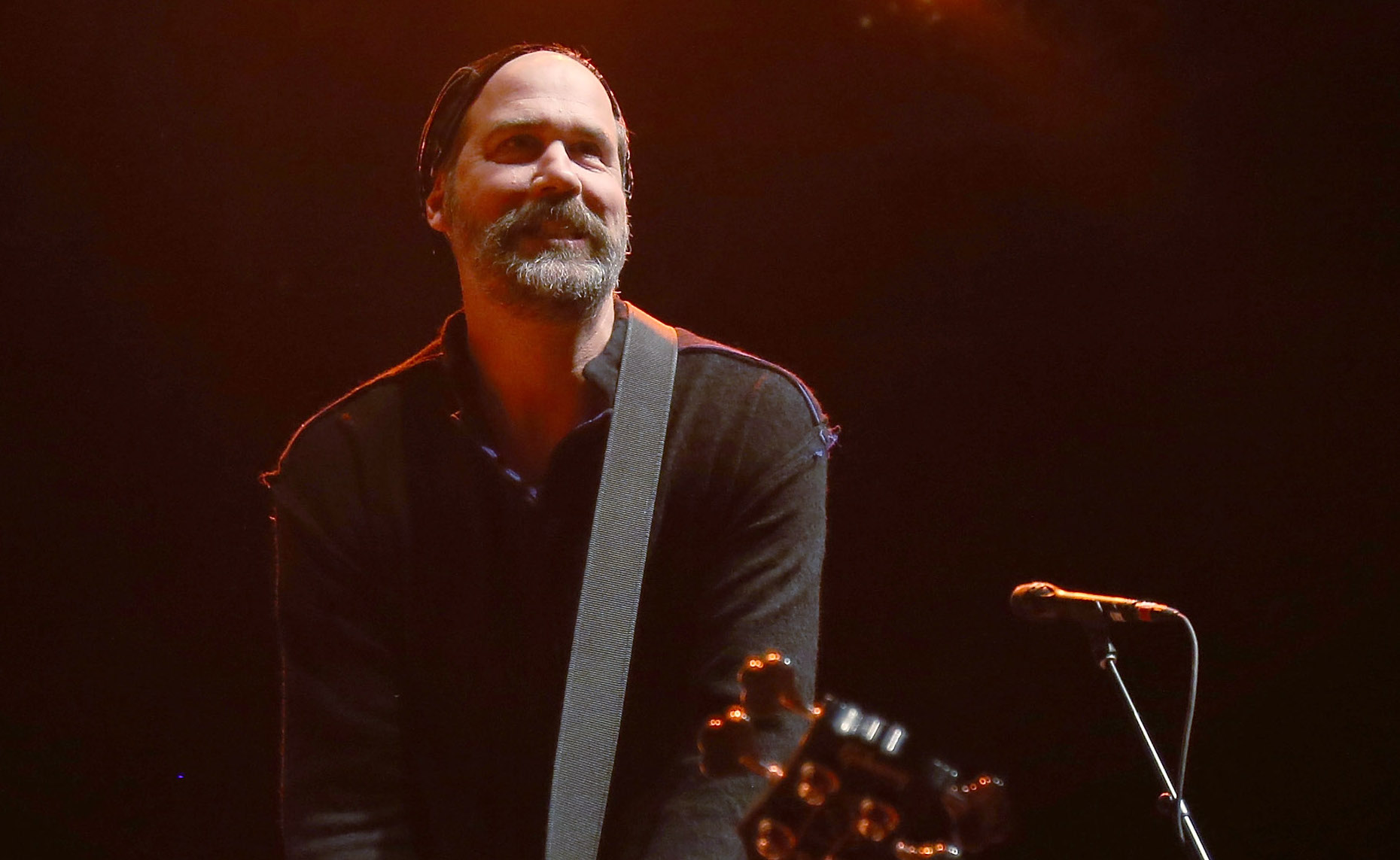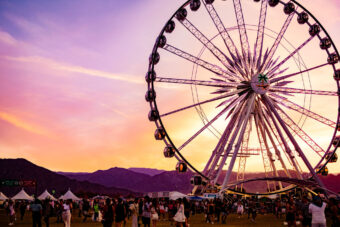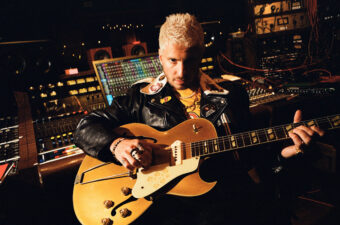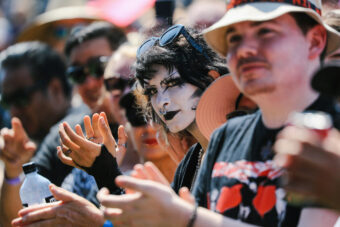Benjamin Franklin. Alexander Hamilton. Krist Novoselic? He may not have his face on U.S. currency yet, but in the decade since Nirvana’s demise, the bass guitarist and grunge pioneer has undergone a political awakening of which the Founding Fathers would likely approve.
Novoselic, 39, has used his influence to found JAMPAC (the Joint Artists and Music Promotions Political ActionCampaign) and combat the Erotic Music Law (which banned the sale of “erotic” music to minors) and the Teen Dance Ordinance (which restricted admission into all-ages venues). His first book, Of Grunge and Government: Let’s Fix This Broken Democracy! (RDV/Akashic Books), is a passionate and persuasive account of his personal and political journey, as well as an argument for some much-needed electoral reforms. From his home ins outhwest Washington, Novoselic talked about injecting this year’s election with his own brand of common sense.
What were some of the early moments in your life that shaped your political consciousness?
One was when I was 18, and I signed up for a program that was a leftover from the Great Society [Lyndon B. Johnson’s infrastructural investment program of the 1960s]. I worked in the summer, painting houses for a government-subsidized contractor. I stuck with it until I quit to be a musician, but I thought that was a pretty good deal.
What was the first presidential election you voted in?
It was in 1984 and I was 19 years old. I remember walking into a union hall in Aberdeen and there was a huge portrait of Lyndon B. Johnson on the wall. I actually registered on the spot. I don’t know if my registration wasn’t turned in on time, but they were like, “Sure, you can vote!” and they gave me a provisional ballot, and I voted for Walter Mondale. With the [house-painting job], I thought, “Well, maybe I should vote for these guys.”
Would you say that America’s youth are aware of how politics are conducted in this country?
I don’t think most people are aware of how the system is set up. I was in a bar with a friend, and I said, “I’ll bet you a thousand dollars-you can choose any person here, and see if they know how many state legislative districts there are.” So he looked around-he might have even broken a sweat-and he was like, “I’m not gonna do it.” He wouldn’t take me up on it.
Was your opposition to the Erotic Music Law your political wake-up call, a realization that you could actually make change happen?
Indeed, that’s what it was. Instead of getting all bent out of shape about it, we figured it was time to get proactive and positive. Once we met with legislators face-to-face, they realized we didn’t spend most of our time in L.A. or Cabo San Lucas. We lived in Seattle, we paid taxes, and we gave back to our community. Now we have a city music office and a pro-music mayor.
You were in Seattle during the World Trade Organization protests of 1999.
I was there-I lived downtown at the time. Some of the protesters were in heaven. It was happening-the revolution was here, and people were hell-bent on destruction. There’s nothing worse than a socialist who hates people.
Was there a lesson to be learned there, about how to express your dissent effectively?
Yes. There’s two ways you can do it: You can have a rally on the steps of City Hall, or you can have a public hearing and say, “Hey, this is wrong.” And if there’s enough people who are affected by your message, there’s gonna be change real fast. Could you imagine if all the people who ate at McDonald’s became vegetarians? There’d be nothing but veggie burgers on the menu. It’s called economic democracy.
Do you think it’s wise that the left has started going after its opponents with the same vehemence that you’d usually see from the right?
I don’t think so. The irony of all this bashing from the left is, if it’s successful, on the night of the election it’s going to become obsolete. Wednesday morning, we’re going to wake up and say, “What do we do now?” Even if Bush is re-elected-or finally elected-he’s not going to be on the ballot in ’06. The Bush bogeyman, which is compelling a lot of voters, won’t be a factor.
Should Ralph Nader stay in the race or should he drop out?
I think he should quit. It would be one thing if he had really used these last four years to do something, but instead he’s coming back like, “You bet I’m going to wreck this election! I’m getting 9 percent of the vote this time!” God bless Ralph Nader, no disrespect-I just don’t see it.
You were talking about running for lieutenant governor of Washington this year. What stopped you?
Well, I figured if I were to do it, I’d have to jump in 100 percent, and I’m always spread out a little bit. I’m writing a book, then I’m getting an advanced rating for my plane [Novoselic is a licensed pilot], I gotta put my garden in, I gotta wash the windows on my house. So I figured, shit, maybe not this time. But maybe one of these years I could run for state representative or state senator, and I’d have a pretty good chance.





